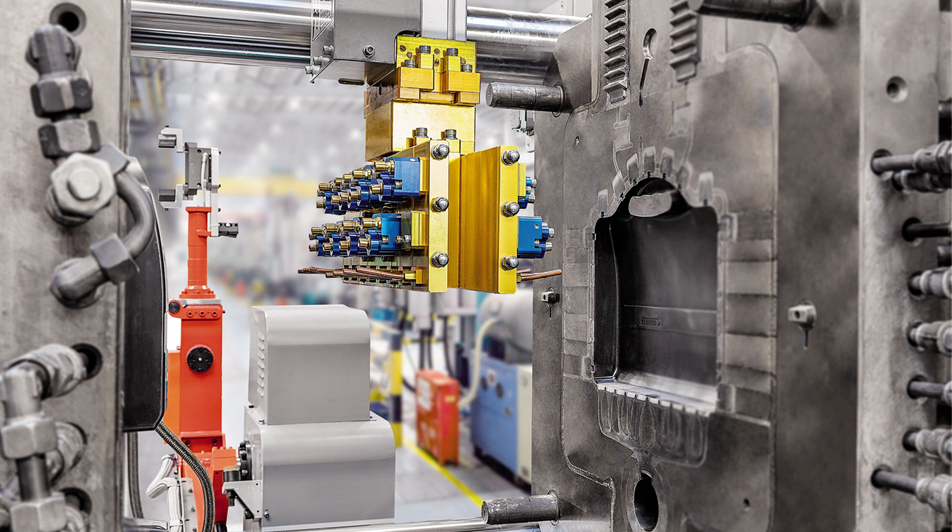Introduction
In the realm of manufacturing, precision plays a vital role in ensuring the production of high-quality components and products. One such technique that embodies precision manufacturing is machined casting. This guide aims to provide an in-depth understanding of machined casting, its process, applications, advantages, and challenges.
Section 1: Understanding Machined Casting
1.1 What is Machined Casting?
Machined casting is a manufacturing process that involves pouring molten metal or other materials into a mold and allowing it to solidify. The resulting casting is then machined to achieve the desired shape, dimensions, and surface finish. This process combines the flexibility of casting with the accuracy of machining, resulting in complex and precise components.
1.2 The Machined Casting Process
The machined casting process starts with the design of a pattern, which is a replica of the desired part. The pattern is used to create a mold, typically made of sand or other refractory materials. Molten metal is then poured into the mold, which is left to cool and solidify, forming the casting. Finally, the casting is machined using various cutting tools, such as lathes, mills, or drills, to achieve the desired shape and finish.
Section 2: Applications of Machined Casting
2.1 Automotive Industry
The automotive industry extensively utilizes machined casting for the production of engine blocks, cylinder heads, transmission cases, and other critical components. Machined casting allows for the production of intricate designs, ensuring optimal performance and durability.
2.2 Aerospace Industry
In the aerospace industry, machined casting is utilized for manufacturing turbine blades, structural components, and aircraft engine parts. The high precision and integrity achieved through machined casting processes are crucial for ensuring the safety and efficiency of aerospace systems.
2.3 Medical Industry
Precision is of utmost importance in the medical industry, and machined casting enables the production of complex and customized medical devices, such as implants, surgical tools, and prosthetics. This technique provides the necessary accuracy and biocompatible materials required for medical applications.
Section 3: Advantages of Machined Casting
3.1 Design Flexibility
Machined casting offers design flexibility, allowing for the production of complex shapes and intricate details that may not be achievable through traditional machining methods. This flexibility enables manufacturers to create innovative and customized products.
3.2 Cost-Effectiveness
Machined casting can be a cost-effective manufacturing solution, especially for producing large quantities of components. Once the mold is created, multiple castings can be produced, reducing the per-unit cost and overall manufacturing expenses.
3.3 Material Versatility
Machined casting can be performed with a wide range of materials, including metals, alloys, plastics, and ceramics. This versatility allows manufacturers to select the material that best suits the requirements of the application, considering factors such as strength, weight, and heat resistance.
Section 4: Challenges in Machined Casting
4.1 Surface Finish
Achieving a desired surface finish in machined casting can be challenging due to the nature of the casting process. Additional steps, such as polishing or coating, may be required to achieve the desired aesthetic and functional properties.

4.2 Dimensional Accuracy
Maintaining dimensional accuracy can be a challenge in machined casting, as the solidification process can result in shrinkage or distortion. Advanced techniques, such as simulation software and precise mold design, are employed to minimize these issues.
4.3 Machining Complexity
Machining castings can be more complex than machining solid materials due to the presence of internal cavities, varying wall thickness, and potential casting defects. Specialized machining techniques and tools are required to overcome these challenges.
Conclusion
Machined casting is a powerful precision manufacturing technique that combines the advantages of casting and machining. Its applications span across various industries, including automotive, aerospace, and medical. While it offers design flexibility, cost-effectiveness, and material versatility, challenges related to surface finish, dimensional accuracy, and machining complexity must be carefully addressed. By understanding the intricacies of machined casting, manufacturers can unlock its full potential and produce high-quality components consistently.
-

- Carcasa de motor de montaje medio de vehículo eléctrico de fundición a presión de aleación de magnesio
-

- Bicicleta eléctrica Aleación de magnesio 12 pulgadas Rueda integrada 36v10ah Ciclomotor eléctrico
-

- parts&comopnents for bicycle suspension fork for MTB
-

- volante de fundición a presión de alta precisión para automoción
-

- Piezas y componentes fundidos a presión OEM
-

- Fundición a presión de aleación de magnesio Autopartes Escalón lateral Estribo

 0086-750-5616188
0086-750-5616188 +86 13392089688
+86 13392089688 sales@zhongmei-tech.com
sales@zhongmei-tech.com







